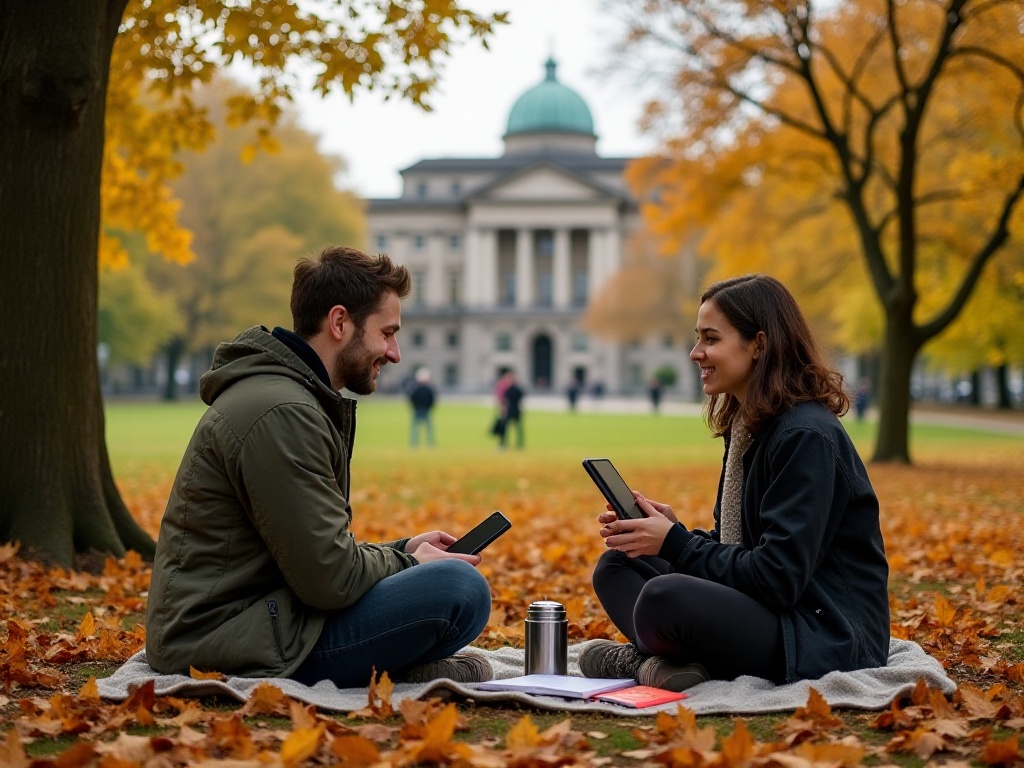
Why I Went
Last summer, I finally made up my mind to study Spanish in Spain. To be honest, I could barely pronounce "Hola" (hello) correctly at the time, stumbling over even basic greetings. While watching Spanish movies or listening to Spanish songs, I always found the language fascinating but felt self-study was too slow and difficult. I have a deep understanding about language learning: classroom learning alone is far from enough to truly master a language. After all, language is a tool for communication, not just a subject for exams. Studying in China might help with tests, but to truly use the language, you need to practice in an immersive environment.
After careful consideration, I decided to study directly in Spain. I chose Spain not only because it's the birthplace of Spanish, but more importantly because of its rich cultural heritage and unique lifestyle. From Flamenco dancing to siestas, from paella to tapas, everything attracted me deeply. Moreover, the relaxed pace of life in Spain is perfect for beginners to adapt and learn gradually.
Pre-departure Preparation
In the two months before departure, I prepared thoroughly every day for this language learning journey. First, I downloaded several language learning apps like Duolingo, Babbel, and Busuu, practicing daily. I focused on learning practical everyday phrases, such as "Quiero esto" (I want this) for ordering food, "¿Dónde está?" (Where is it?) for asking directions, and basic numbers and time expressions.
Besides language learning, I did extensive cultural research. I watched many documentaries and travel guides about Spain to understand local customs and lifestyle. For instance, Spanish people have very different daily schedules from us - they typically have lunch at 2 PM and don't start dinner until after 9 PM. Understanding these cultural differences was crucial for later adaptation.
For accommodation, I chose to stay with a host family. I believed this would provide the best language learning environment, with constant exposure to Spanish and insight into local life. Through a legitimate agency, I connected with a Spanish family - a retired couple who had hosted many language learners from around the world.
To ensure smooth communication, I prepared a small notebook with common phrases and important addresses. I also downloaded offline maps and translation software just in case. For luggage, I specifically packed some Chinese-style gifts for my host family and future friends.
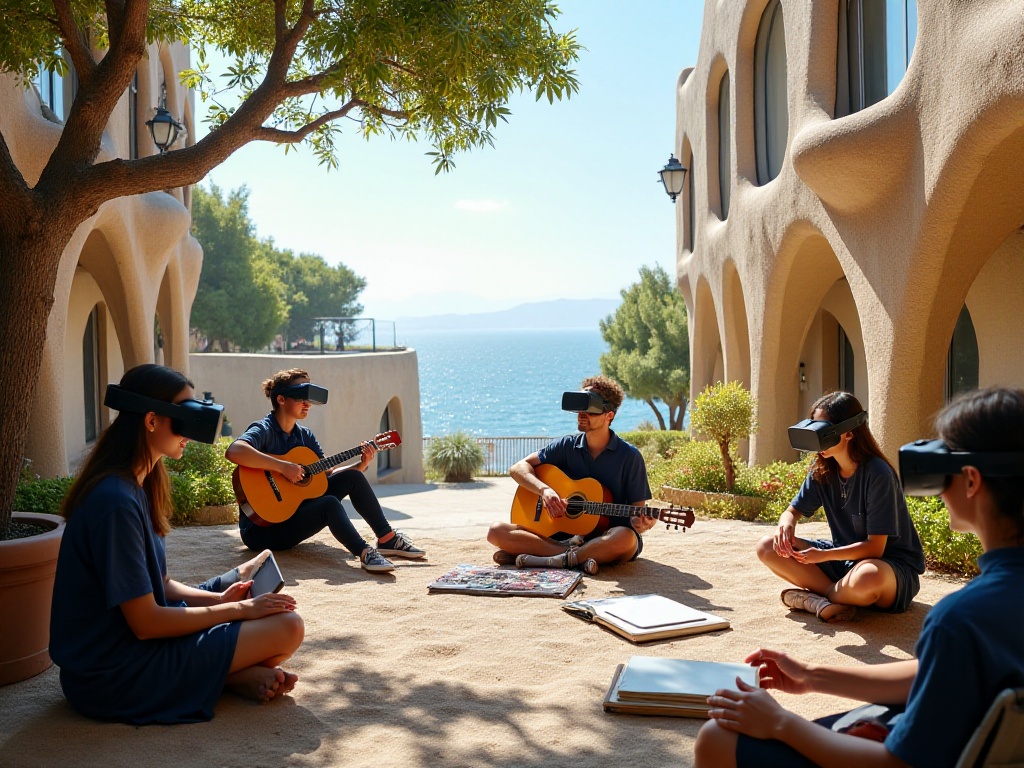
First Arrival in Madrid
I remember being incredibly nervous when I first arrived in Madrid. Leaving the airport, I tried to ask for directions to the city center in Spanish, stumbling over my words and even pronouncing "gracias" (thank you) as "grasias". Despite my preparation, my tongue felt tied when actually trying to communicate with locals. During my first time ordering at a coffee shop, I stammered through my prepared phrases, only to have the clerk respond in English. At that moment, my face burned with embarrassment, and I wished I could disappear into the ground.
However, I was touched by how friendly the people of Madrid were. Even when I spoke incorrectly, they would patiently listen and then help me understand using simple words and gestures. That first evening, during dinner with my host family, my landlady deliberately spoke slowly to communicate with me and taught me some authentic expressions. She said everyone starts this way when learning, and it gets better gradually.
During my first week in Madrid, I adjusted to the local rhythm of life each day. Leaving for class at 9 AM seemed too early, as most shops weren't even open yet. Waiting until 2 PM for lunch was quite challenging for someone used to eating at noon. However, I quickly fell in love with the leisurely lifestyle here, especially the afternoon siesta when it felt like the whole city was enjoying life.
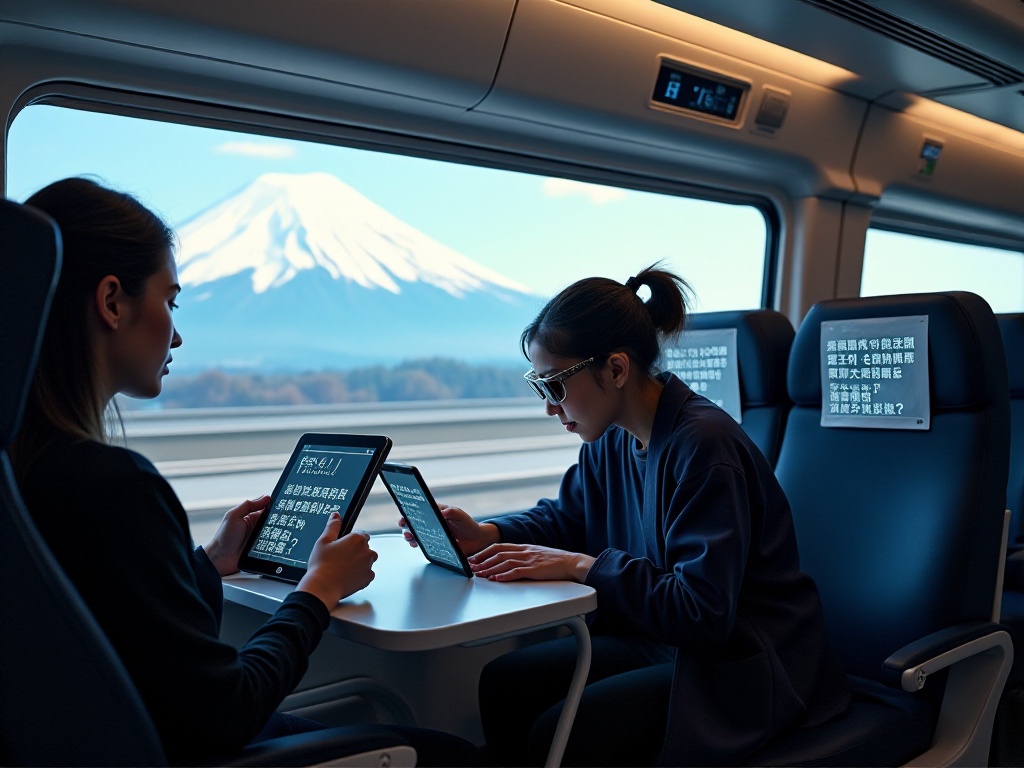
Language School
I chose a language school in central Madrid with a good local reputation that used an immersion teaching method. From 9 AM to 3 PM, except for breaks, we could only speak Spanish. The teachers were experienced and particularly focused on developing conversational skills.
The first week was truly challenging. I often couldn't understand what the teachers were saying and had to guess based on other students' reactions. When teachers asked me questions, I would freeze like a statue, my mind going blank. Especially during group discussions, while students from different countries actively participated, I could only manage a few scattered words.
But by the second week, things started improving. I found myself able to communicate with classmates in simple Spanish. Though my grammar was often wrong and pronunciation not quite standard, I could at least express basic ideas. The teachers frequently encouraged us, saying the most important thing in language learning is daring to speak and make mistakes.
In class, we not only learned grammar and vocabulary but also frequently engaged in role-playing and situational dialogue practice. We simulated scenarios like ordering in restaurants, shopping in markets, and conducting business at banks. These exercises helped us become familiar with various daily conversations in a relatively safe environment.
The school also regularly organized cultural activities, such as watching Flamenco performances, visiting the Prado Museum, or cooking traditional Spanish food together. These activities not only helped us understand Spanish culture but also created many opportunities to practice the language.
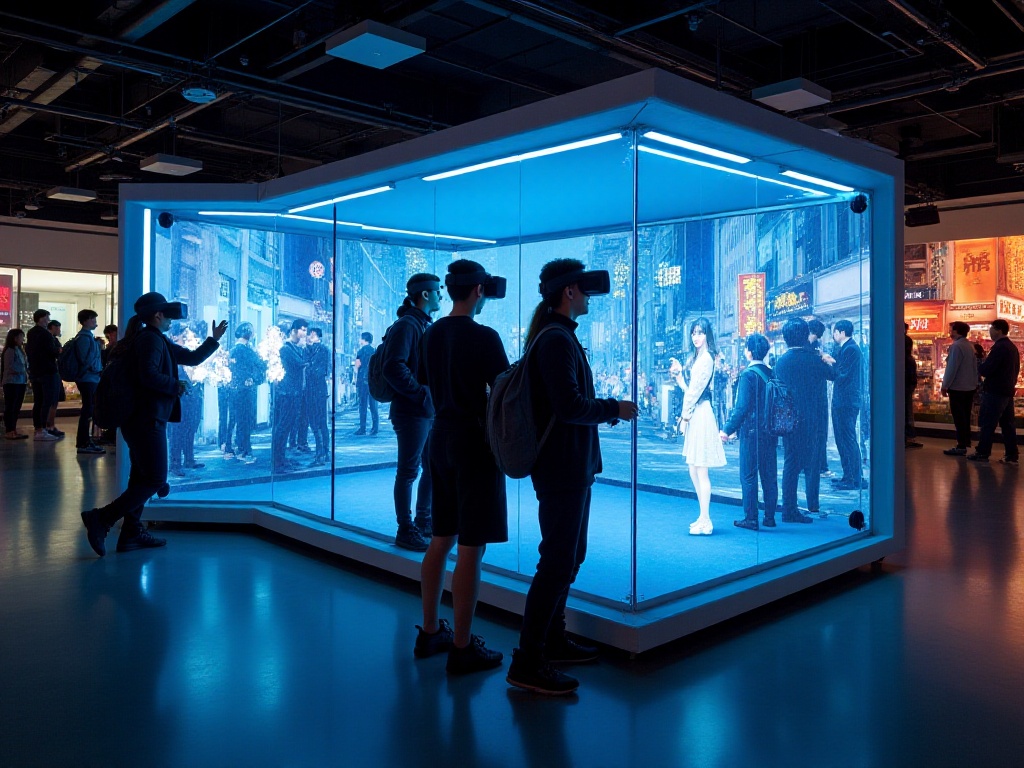
Real-life Practice
I spent all my after-class time practicing. Whether shopping at supermarkets, eating at restaurants, or walking in parks, every scenario was an excellent opportunity to practice. I remember once bargaining with an elderly lady at the market in broken Spanish. Not only did I get cheap tomatoes, but I also learned several authentic market expressions from her. After that, she would chat with me briefly whenever she saw me, which gave me a great sense of achievement.
I also frequently visited nearby cafes. At first, I only dared to order the simplest coffee, but gradually learned to order different types of coffee and snacks. The cafe owner enjoyed chatting with customers and taught me many professional coffee-related terms, often sharing interesting local stories.
On weekends, I would attend language exchange events. These events usually took place in bars or cafes, attended by Spanish people interested in learning Chinese and language learners from around the world. In a relaxed atmosphere, we helped each other correct pronunciation and expressions. These activities not only improved my language skills but also helped me make like-minded friends.
Every detail in daily life became a learning opportunity. While riding the metro, I would carefully listen to station announcements; when looking at road signs, I would silently memorize new words; even while waiting for traffic lights, I would practice counting numbers. Gradually, I found myself starting to think in Spanish, which was a significant breakthrough.
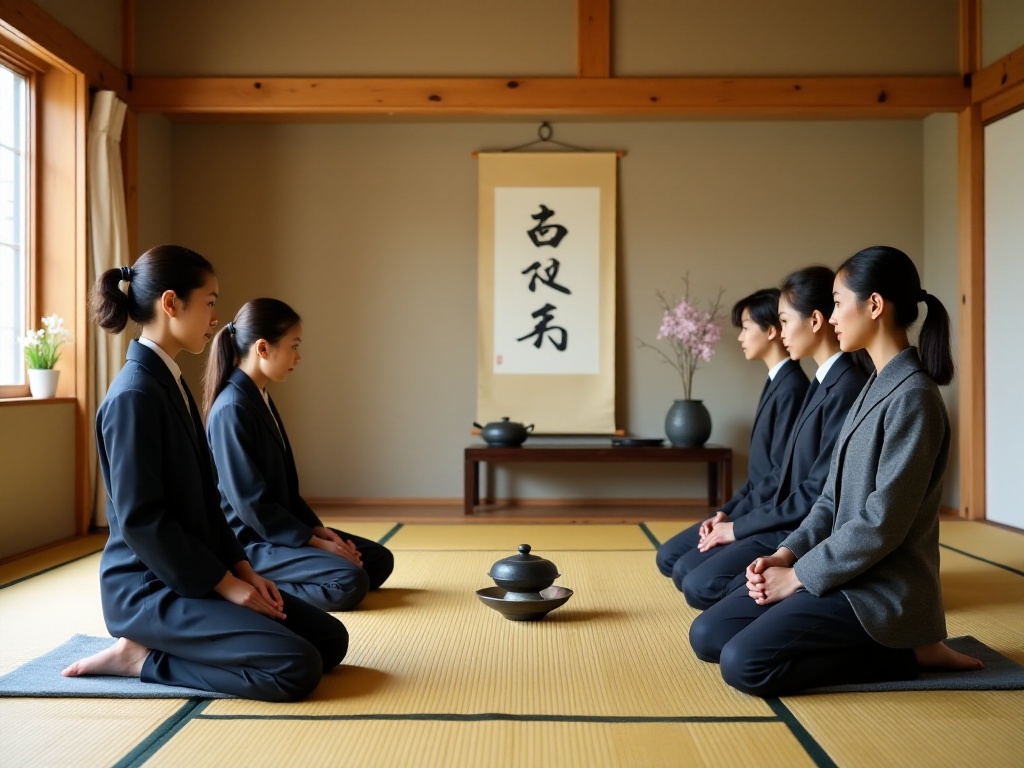
Breakthrough Moments
By the third week, I reached an important turning point. One evening at a small bar, I gathered the courage to join locals in conversation. Initially, I just listened to them talk, but when they started discussing football and mentioned a team I liked, I couldn't help but jump in. To my surprise, they warmly welcomed me into the conversation.
We talked about football, our favorite players, and memorable matches. The conversation naturally shifted to food, and they recommended many local specialties, offering to take me to try authentic paella. We even discussed our dreams. Though my grammar was probably full of mistakes, they listened patiently and occasionally corrected me.
I was so excited about that evening's conversation that I wrote down all the new words and phrases in my notebook when I got home. At that moment, I truly felt that language isn't just a communication tool, but a bridge connecting hearts. Through language, I could truly enter local people's lives and understand their thoughts and culture.
This experience gave me great confidence. Afterward, I became more proactive, often chatting with strangers and participating in various social activities. I discovered that Spanish people are generally very friendly and willing to communicate with foreigners, which made my language learning twice as effective.
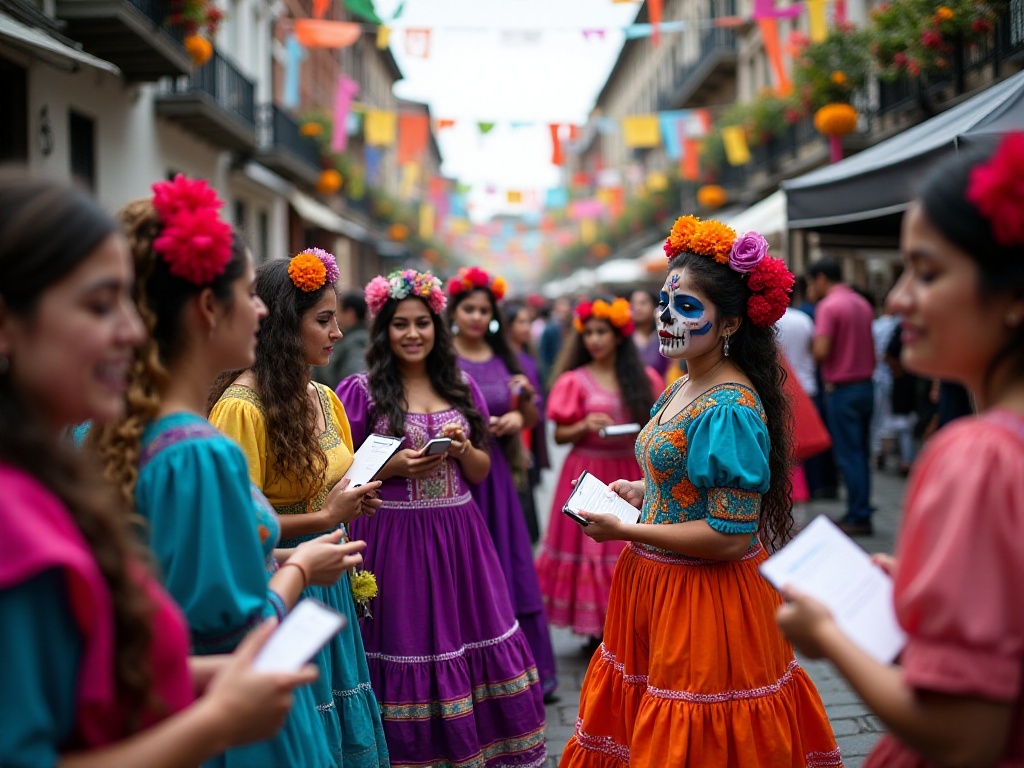
Learning Insights
After a month, my Spanish level improved significantly. From initially stumbling over words to later being able to engage in basic daily conversations, this progress gave me a great sense of achievement. My vocabulary grew from a few hundred words to over two thousand, and I learned many authentic expressions.
Through this learning experience, I summarized several important lessons:
First, don't be afraid of making mistakes. The biggest obstacle for many language learners is the fear of speaking incorrectly or being laughed at. However, locals are generally very friendly and care more about your willingness to communicate than perfect grammar. I've made many mistakes with gender and tense, but no one ever mocked me. Instead, they would patiently correct me and teach me more authentic expressions.
Second, seize every practice opportunity. Buying things in stores, ordering in restaurants, asking for directions on the street - these are all excellent practice scenarios. I found that expressions learned in real situations often leave particularly deep impressions because they're connected to specific contexts and emotions. Statistics show that language learners' effectiveness in real situations is more than three times that of classroom learning.
Creating communication opportunities is also important. Besides attending language exchange events, I often joined interest groups like cooking classes and dance lessons. In these activities, people gather around common interests, making communication particularly natural. Based on my experience, at least 15 hours of actual conversation practice per week is necessary to truly improve speaking skills.
Additionally, I think comprehensive language input is important. I would listen to Spanish radio, watch Spanish TV programs, read Spanish newspapers, and even changed my phone system language to Spanish. This increases language exposure unconsciously and helps develop language sense.
Finally, patience and persistence are essential. Language learning is a gradual process that can't be rushed. Sometimes progress may feel slow, but there will always be gains if you persist. I kept a daily learning diary to review new knowledge learned each day, which also helped me see my progress more clearly.
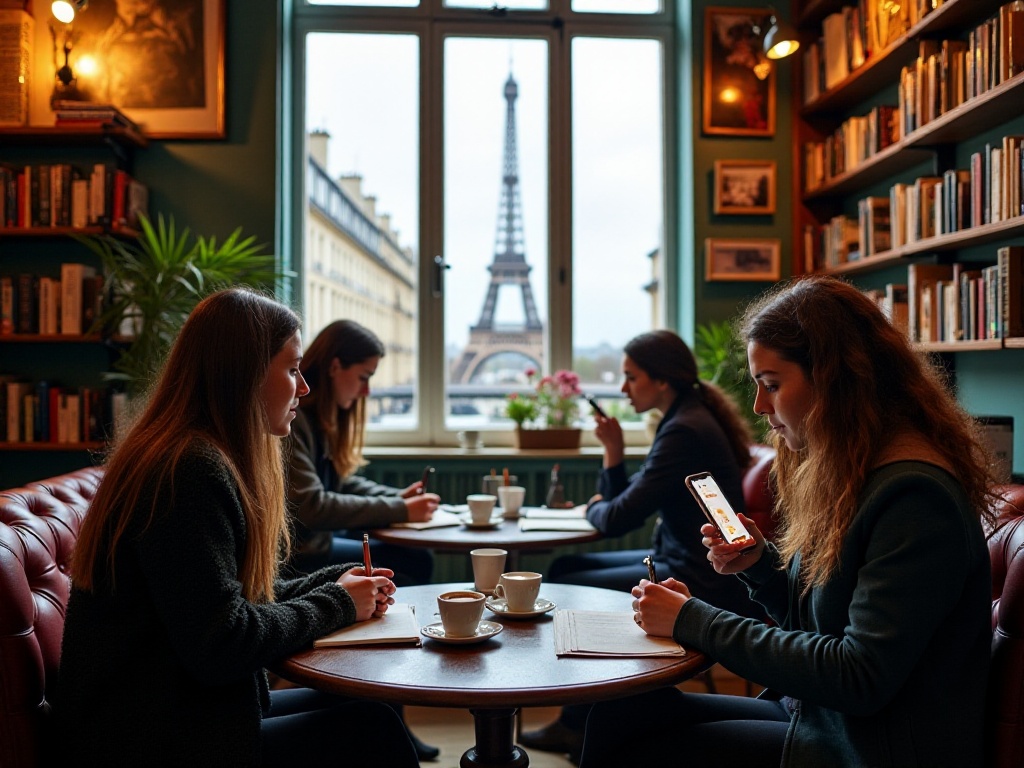
Rewarding Outcomes
This trip to Spain not only improved my language ability but also gave me a deeper understanding of Spanish culture. I learned to enjoy the Spanish way of life, understanding why they value their afternoon tea time so much and why they're always so warm and hospitable.
Linguistically, I can now handle daily conversations in Spanish and passed the A2 level Spanish exam. This achievement means a lot to me - it's not just recognition of my learning results but also motivation to continue studying.
More importantly, this experience helped me make many good friends, both international language learners and friendly local Spanish people. We still keep in touch, often chatting in Spanish and sharing life experiences.
This experience taught me that the best way to learn a language is to immerse yourself in an environment where you must speak it. In such an environment, you'll find that learning a language can be fun, and progress comes much faster than expected.
After returning home, I've continued studying Spanish. I regularly video chat with my Spanish friends, watch Spanish films and TV shows, and read Spanish news. I believe that with continued enthusiasm and persistence, I'll eventually reach an even higher level.
Do you have similar language learning experiences? Feel free to share your story in the comments. If you're planning a language learning journey, I hope my experience provides some inspiration. Whatever you do, take that brave first step, and you'll surely reap abundant rewards!
Next
Learning Languages in Foreign Lands: An Immersive Experience Shared by a Travel Blogger
Explore the dynamic relationship between travel and language learning, examining how immersion enhances language skills and how linguistic abilities deepen travel experiences through cultural engagement and authentic interactions
One Person's Language Journey: Measuring the World with Footsteps, Making Travel the Best Language Classroom
Explore effective methods and benefits of learning languages through travel, combining immersive strategies with practical approaches, supported by digital tools and structured resources for enhanced language acquisition and personal growth
One Person's Language Learning Journey: My 90-Day Immersion Experience in a Rural Japanese Town
Explore how travel facilitates language learning through immersive environments, covering natural and structured learning methods, along with guidance on choosing suitable language programs and courses to enhance language skills while traveling
Next

Learning Languages in Foreign Lands: An Immersive Experience Shared by a Travel Blogger
Explore the dynamic relationship between travel and language learning, examining how immersion enhances language skills and how linguistic abilities deepen travel experiences through cultural engagement and authentic interactions

One Person's Language Journey: Measuring the World with Footsteps, Making Travel the Best Language Classroom
Explore effective methods and benefits of learning languages through travel, combining immersive strategies with practical approaches, supported by digital tools and structured resources for enhanced language acquisition and personal growth

One Person's Language Learning Journey: My 90-Day Immersion Experience in a Rural Japanese Town
Explore how travel facilitates language learning through immersive environments, covering natural and structured learning methods, along with guidance on choosing suitable language programs and courses to enhance language skills while traveling



